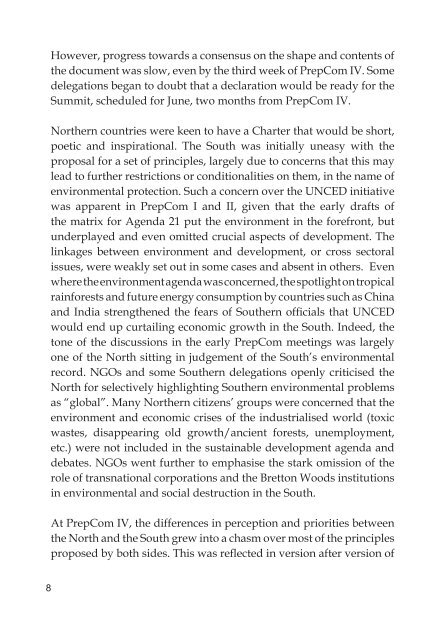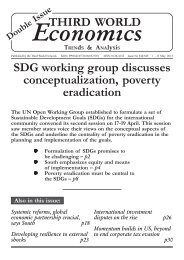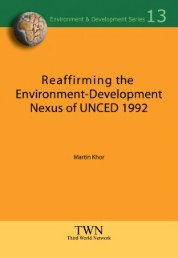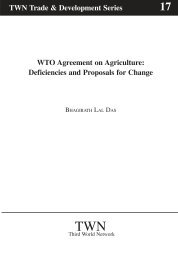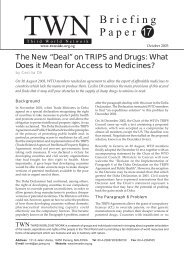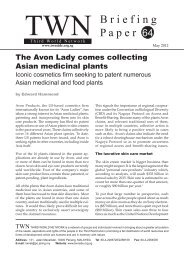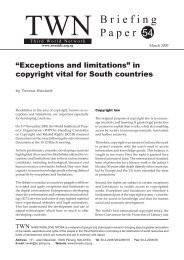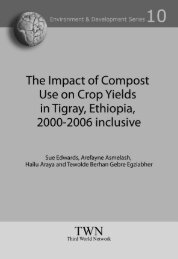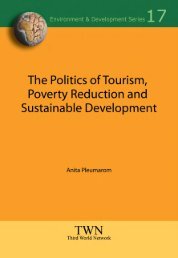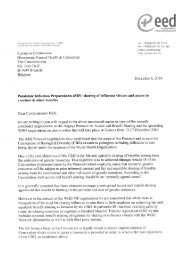Rio Declaration On Environment and Development: An Assessment
Rio Declaration On Environment and Development: An Assessment
Rio Declaration On Environment and Development: An Assessment
You also want an ePaper? Increase the reach of your titles
YUMPU automatically turns print PDFs into web optimized ePapers that Google loves.
However, progress towards a consensus on the shape <strong>and</strong> contents of<br />
the document was slow, even by the third week of PrepCom IV. Some<br />
delegations began to doubt that a declaration would be ready for the<br />
Summit, scheduled for June, two months from PrepCom IV.<br />
Northern countries were keen to have a Charter that would be short,<br />
poetic <strong>and</strong> inspirational. The South was initially uneasy with the<br />
proposal for a set of principles, largely due to concerns that this may<br />
lead to further restrictions or conditionalities on them, in the name of<br />
environmental protection. Such a concern over the UNCED initiative<br />
was apparent in PrepCom I <strong>and</strong> II, given that the early drafts of<br />
the matrix for Agenda 21 put the environment in the forefront, but<br />
underplayed <strong>and</strong> even omitted crucial aspects of development. The<br />
linkages between environment <strong>and</strong> development, or cross sectoral<br />
issues, were weakly set out in some cases <strong>and</strong> absent in others. Even<br />
where the environment agenda was concerned, the spotlight on tropical<br />
rainforests <strong>and</strong> future energy consumption by countries such as China<br />
<strong>and</strong> India strengthened the fears of Southern officials that UNCED<br />
would end up curtailing economic growth in the South. Indeed, the<br />
tone of the discussions in the early PrepCom meetings was largely<br />
one of the North sitting in judgement of the South’s environmental<br />
record. NGOs <strong>and</strong> some Southern delegations openly criticised the<br />
North for selectively highlighting Southern environmental problems<br />
as “global”. Many Northern citizens’ groups were concerned that the<br />
environment <strong>and</strong> economic crises of the industrialised world (toxic<br />
wastes, disappearing old growth/ancient forests, unemployment,<br />
etc.) were not included in the sustainable development agenda <strong>and</strong><br />
debates. NGOs went further to emphasise the stark omission of the<br />
role of transnational corporations <strong>and</strong> the Bretton Woods institutions<br />
in environmental <strong>and</strong> social destruction in the South.<br />
At PrepCom IV, the differences in perception <strong>and</strong> priorities between<br />
the North <strong>and</strong> the South grew into a chasm over most of the principles<br />
proposed by both sides. This was reflected in version after version of<br />
8


